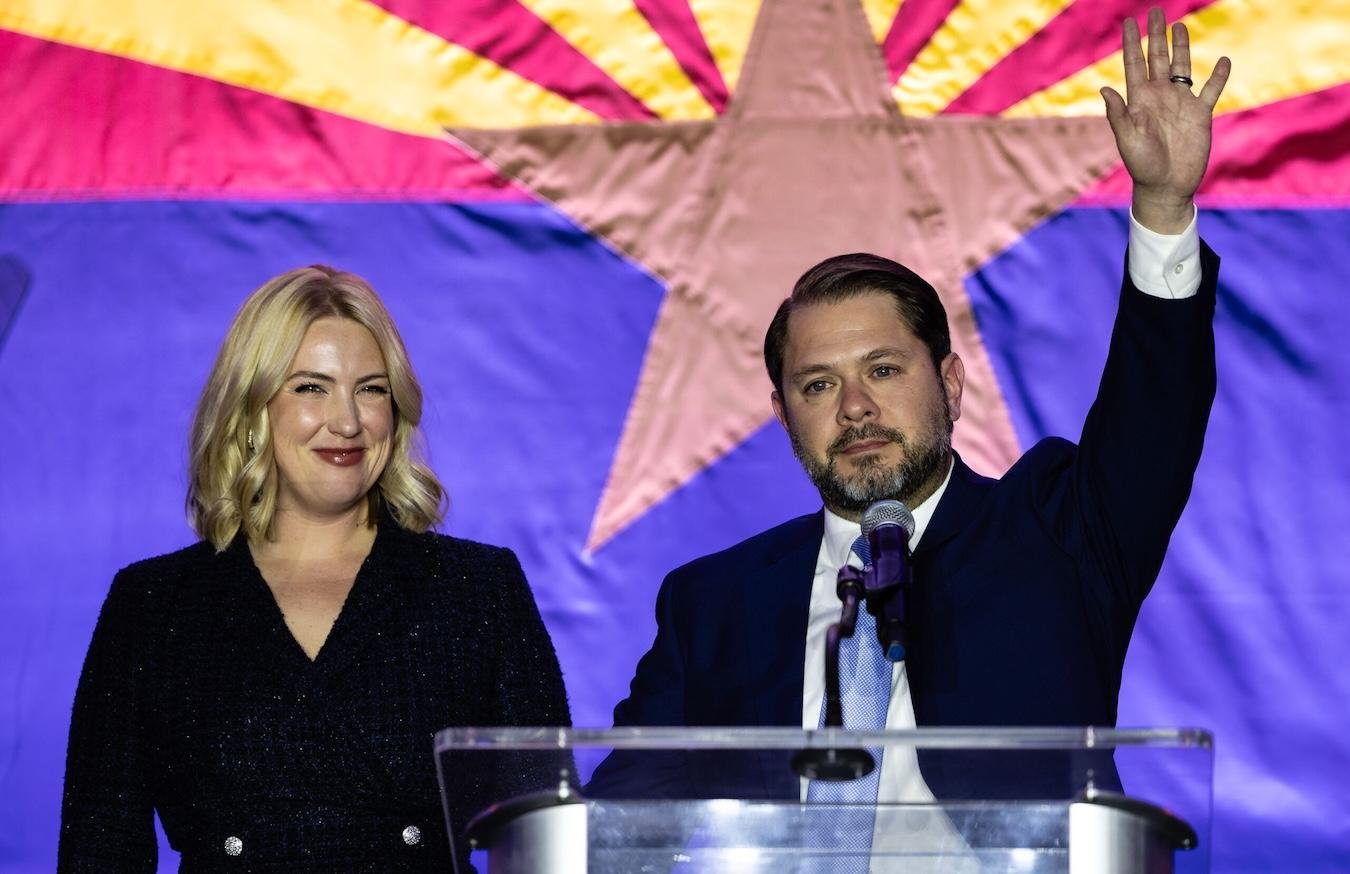arizona
Gallego’s Spending Triumph in Senate Race Highlights Cash Isn’t Always King in Arizona’s Other Elections

In Arizona’s recent elections for the U.S. Senate and House, over $250 million was spent, yet no seats changed hands, highlighting the complex relationship between campaign funding and electoral success.
The most significant share of this spending went to the Senate race between Democratic Representative Ruben Gallego and Republican Kari Lake, a former news anchor, totaling approximately $156 million, as noted by OpenSecrets, which monitors campaign expenditures. Gallego outspent Lake and her allies more than two-to-one, ultimately winning by nearly 81,000 votes, a margin of 2.4 percentage points.
Experts describe the situation as an “arms race” in political spending. Ian Vandewalker, a senior counsel at the Brennan Center for Justice, indicated that national Republican funds shifted away from Lake’s campaign as her support consistently lagged behind that of former President Donald Trump. This strategic move allowed Republicans to allocate resources to more competitive states.
While Arizona’s Senate contest became one of the most expensive in the nation, it fell short of Ohio’s record of $421 million, likely to exceed a half-billion once all expenses settle. The cost of Arizona’s 2020 Senate race reached approximately $258 million, down from $228 million in 2022, both won by Democratic Senator Mark Kelly.
Gallego will succeed one-term Senator Kyrsten Sinema, who won her seat as a Democrat but now caucuses as an independent. Sinema’s 2018 campaign saw $118 million in expenditures. Matthew Foster, a government professor at American University, remarked that despite overspending, Democrats consider it worthwhile since they secured the Senate seat.
Overall, Democrats outpaced Republicans in fundraising, with figures at $83 million to $45 million for the Senate and House races, according to Federal Election Commission data. Outside organizations contributed an additional $130 million.
Analysts suggest Lake’s controversial approach, including her denial of the 2020 election results and contentious remarks toward mainstream Republicans, contributed to her loss. Many voters appeared willing to split tickets for robust candidates, but Lake’s perceived flaws undermined her campaign.
In the House races, most districts displayed strong partisan leanings, and Republicans maintained control with six out of nine seats. The most closely contested race featured Republican Rep. Juan Ciscomani of Tucson facing former state Senator Kirsten Engel, with each side investing over $18 million. Ciscomani ultimately won by around 11,000 votes, a significant increase over their previous election margins and a disappointment for Democrats who hoped for a broader recovery in the House.
The race for Representative David Schweikert’s seat also saw intense spending—over $25 million—where he defeated Democrat Amish Shah by a narrow margin of 52-48, despite Shah’s financial advantages. In other districts, incumbents with substantial fundraises predominated, secured by Rep. Greg Stanton, a Democrat, who defeated Republican Kelly Cooper by a margin of seven points.
In summary, while dollars flowed into Arizona’s political campaigns, the results reaffirmed the necessity of candidate quality and strategic planning in electoral politics.


















